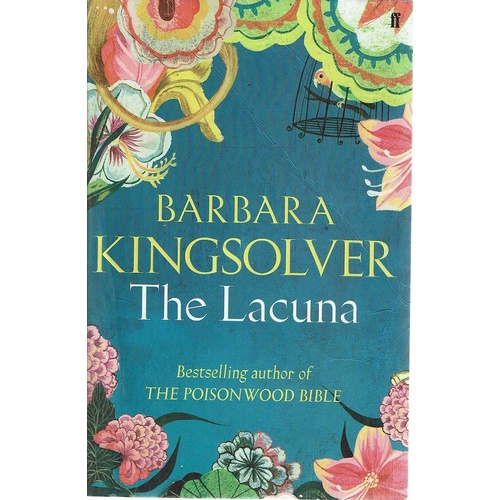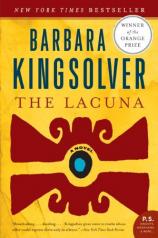

The journals he keeps from then on make up the novel, secretly preserved, and meticulously transcribed years later by one Violet Brown.

He begins with reading adventure novels and Mexican history, copying out the most important passages in his notebooks before having to return the books. Spending days on end swimming in the ocean, he also discovers the eponymous lacuna, an underwater cave with Aztec treasures, which he later reads about and then writes about in his novels. He also develops a sense of his privilege, of injustice in the world, and compassion. He develops a close relationship with the cook Leandro, who works in the house where he lives, and who teaches him how to make pastry dough, among other delights. It is not that he necessarily wants to be left by himself, but as an only child with an unstable family life, he often finds himself alone. Born in the US but growing up in Mexico, Harrison spends much of his nomadic childhood on his own. The book opens in late 1920s Mexico, on Isla Pixol, where the mother of protagonist Harrison Shepherd has followed her new lover. The Lacuna, published just over ten years on, reflects a much sharper critique of the system in which we live, touching on racism, homophobia and the role of propaganda. The novel’s underlying theme is freedom – free speech, freedom from discrimination and artistic freedom – and ultimately human liberation.īarbara Kingsolver is probably best known for The Poisonwood Bible (1998), a story about imperialism and anti-colonialism that details the life of a missionary family living in 1960s Congo. Both issues have considerable resonance in the post 9/11 world. Set over two decades and spanning the Depression of the 1930s to the beginnings of McCarthyism in the 1940s, The Lacuna is both about the media creation of, and obsession with, celebrity, as well as the anti-communist crusade that began in the post-World War II era. But once it settles down you realise how clever it is, on so many levels. It takes a few pages to get into the story and understand how the book is constructed: a series of diary entries, archivist’s notes, newspaper clippings, letters and congressional transcripts.


But scarcely acknowledged is how far Kingsolver goes in her critique of the hypocrisy of western political culture and her corresponding sympathy for revolutionaries.īarbara Kingsolver, The Lacuna (Faber and Faber 2009), 670pp. The Lacuna is an intelligent and engaging piece of historical fiction, and deserves all the praise it has got from the mainstream.


 0 kommentar(er)
0 kommentar(er)
